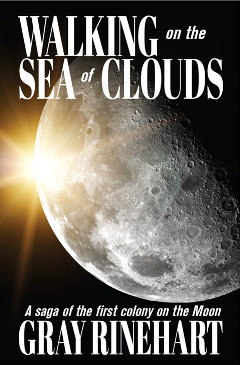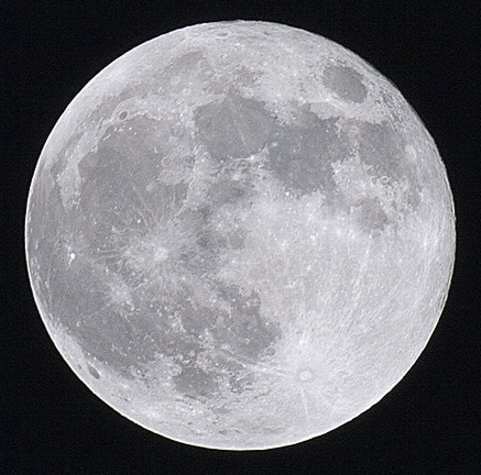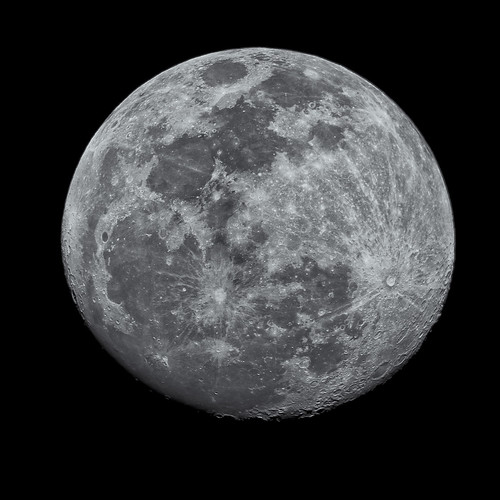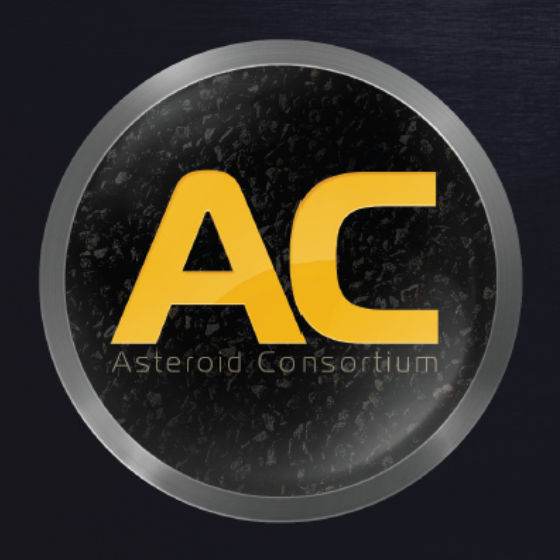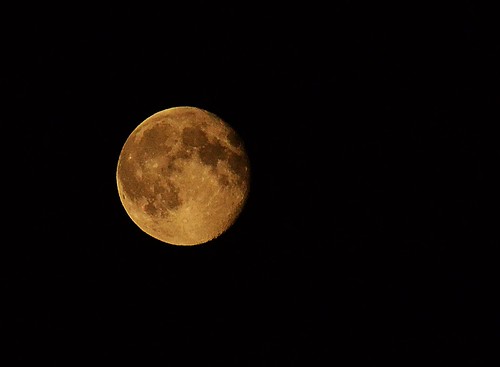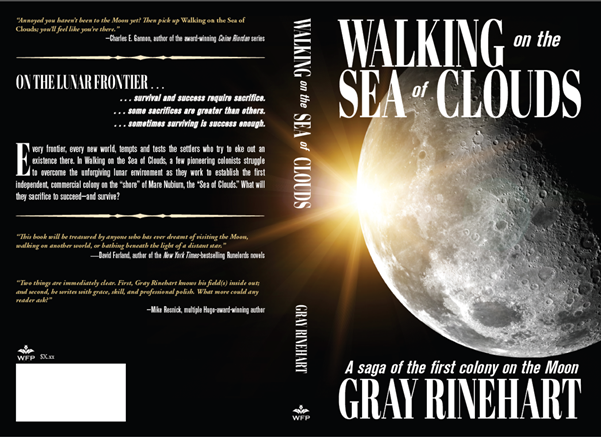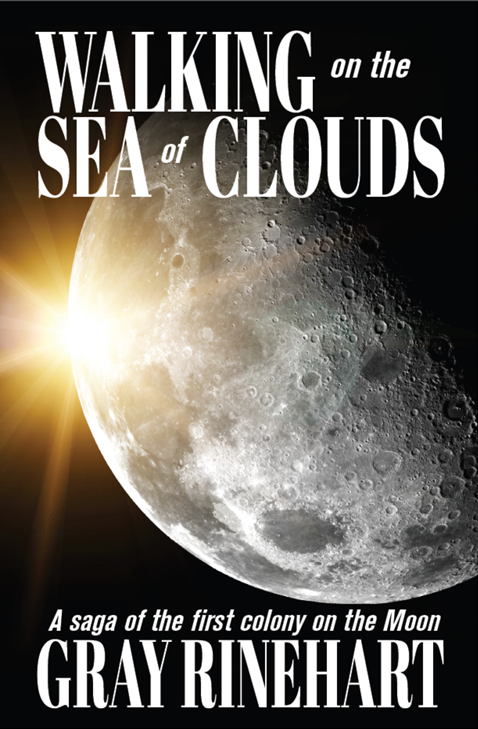We’re one week out from releasing Walking On The Sea of Clouds into the world! In case you’re still wondering whether the novel is your kind of read, here are some comments made about it:
Much like The Martian, Walking on the Sea of Clouds puts you on a lifeless rock and makes you think about why we explore new frontiers even as it explains how it can be done.
— Booklist OnlineThis book will be treasured by anyone who has ever dreamt of visiting the Moon, walking on another world, or bathing beneath the light of a distant star.
— David FarlandAnnoyed you haven’t been to the Moon yet? Then pick up Walking on the Sea of Clouds; you’ll feel like you’re there.
— Charles E. GannonIf you’ve ever wanted to be a colonist on the moon, this is as close as you will ever get without going there yourself.
— Wendy S. Delmater, Abyss & Apex
In other words, if you’re not a science fiction fan, and space exploration holds no fascination for you, then my novel is not for you — and that’s okay. Maybe you know someone who likes such things; I’d be honored if you told your friends about it!
Since we’re down to just a few days before the book will be available, it seemed like a good time to review how this all came about, for folks who might wonder just how long the road to publication can be. Unfortunately, that in itself is a long story — since the road to publication was over a decade long — but because I value your time I cut down my original retrospective by more than half. (You’re welcome.)
So, briefly:
- In 2000-01, when I was stationed in Greenland, I wrote my first novel about an environmental engineer working to keep a lunar colony alive. (Sound familiar?) I was offered a contract on it by a small press, but backed out because I could not accept the terms.
- In 2003, I had the good fortune to attend Orson Scott Card’s writing workshop, where I learned why every other publishing house had rejected or ignored that first novel. The next year I attended his “Literary Boot Camp,” where the lesson was reinforced: that first novel was not up to par.
- I turned my attention to short fiction, but the general idea of that first novel still appealed to me. In 2006, I wrote a novelette starring one of the main characters but that story never sold.
- In 2007, I began writing the new novel under the title Mare Nubium, which is the lunar formation — the “Sea of Clouds” — where I located the colony.
- In 2008, I set a goal for myself to finish the novel that year, and even cataloged my progress on my blog. I also had the good fortune to attend Dave Wolverton’s novel writing workshop, which challenged me in terms of structuring the story and presenting it in the best way I could.
- In January 2009, I finished the novel. (Not only do I write slowly, but I was working two jobs during that time.) Shortly thereafter I sent it out to a number of readers for their feedback. I received a great deal of helpful comments, and in the process of making changes I re-titled the novel Walking On The Sea of Clouds.
- In mid-2009, I started sending it to agents and publishers. Over the next few years I sent inquiries to over 60 agents, of whom about 40 actually wrote back to reject the novel. A grand total of four agents asked to see the whole manuscript, but they also passed on the project. (I never did get an agent.) At the same time I sent submissions to a variety of publishers — sometimes including a personal referral, sometimes referencing having met them at a convention. All told, I sent the novel to ten different publishers, most of which were at least kind enough to respond even if their answer was “no.”
- In early 2016, WordFire Press said “yes.” There’s an interesting side story about that, involving interest from a newer small press that eventually led to WordFire speeding up their decision, but I’ll save that for another day. (Ask me at a convention sometime.) In May 2016, I believe, we signed the contract and the novel went into the publication pipeline.
- Through the fall of 2016, the novel went through a “developmental edit” with Bryan Thomas Schmidt. I had worked with Bryan on two anthologies, and I was a bit surprised (but pleased) that he didn’t suggest any major structural changes to the story itself. I found his editorial suggestions to be very helpful.
- In late 2016, the novel went into production: cover art (which is tremendous), interior design (also top-notch, with touch-up work being done even now), and so forth. By way of confession, some of the changes I asked for during this part of the process contributed to delaying the novel from the Spring to the Summer. I apologize for that.
That’s the story, in a pretty small nutshell. It seems like a case study in Danish poet and mathematician Piet Hein’s “cryptic admonishment”: TTT — things take time. Like many other pursuits, this is a marathon rather than a sprint, and sticking with it requires either dogged determination or an irrational stubbornness. (In my case it may have been both.) But thankfully we should be able to enjoy the fruits of all these labors in just a few days!
When the time comes, I will send out links for ordering the book from Amazon or wherever. Ordering from Amazon has certain advantages, but WordFire Press is making the book available in other venues as well. The novel will be available electronically or as a trade paperback, and if you prefer you will even be able to get your local bookstore to order a copy for you.
Meanwhile, you can still register for my giveaway: I’m going to hold a drawing to give away several copies of the novel, and the Grand Prize will consist of the novel, both my CDs, and other goodies totaling over $50! All it takes to get your name in the hat is to sign up for my newsletter. Go ahead, do it now — somebody’s going to win, it may as well be you!




